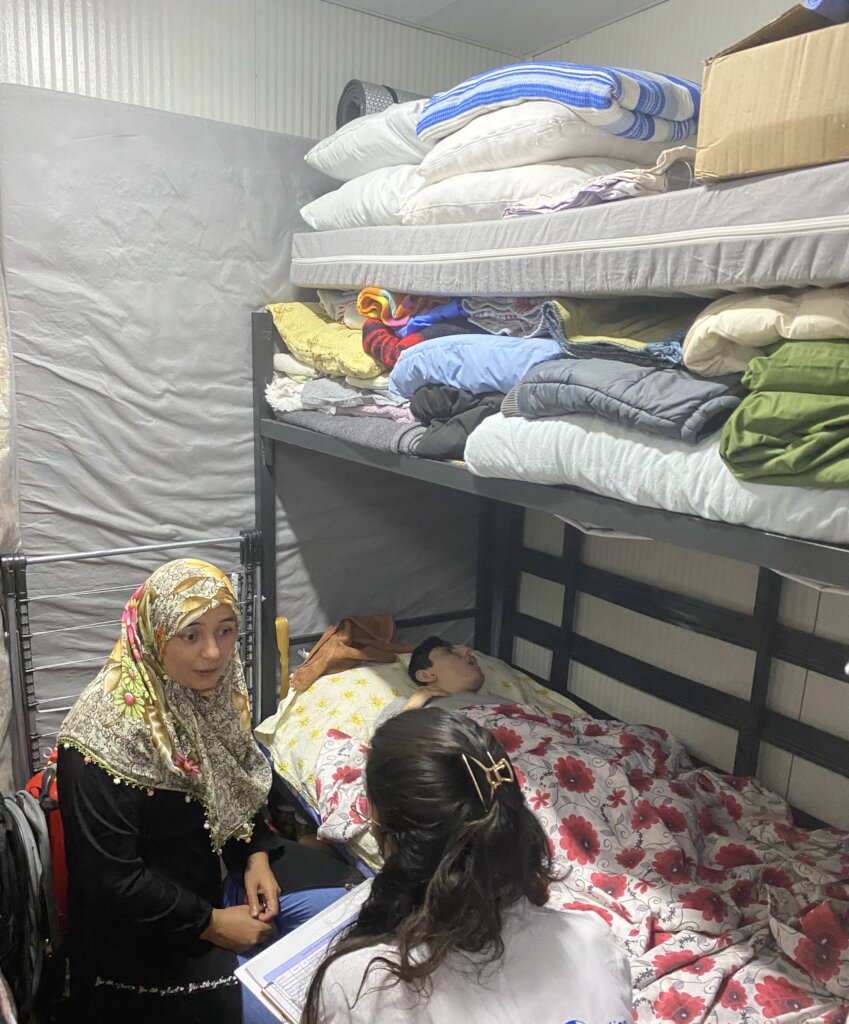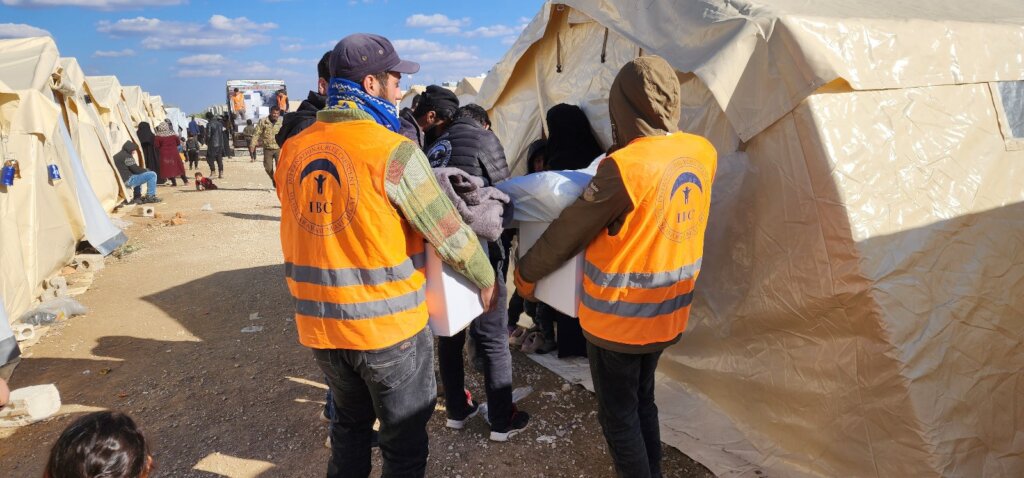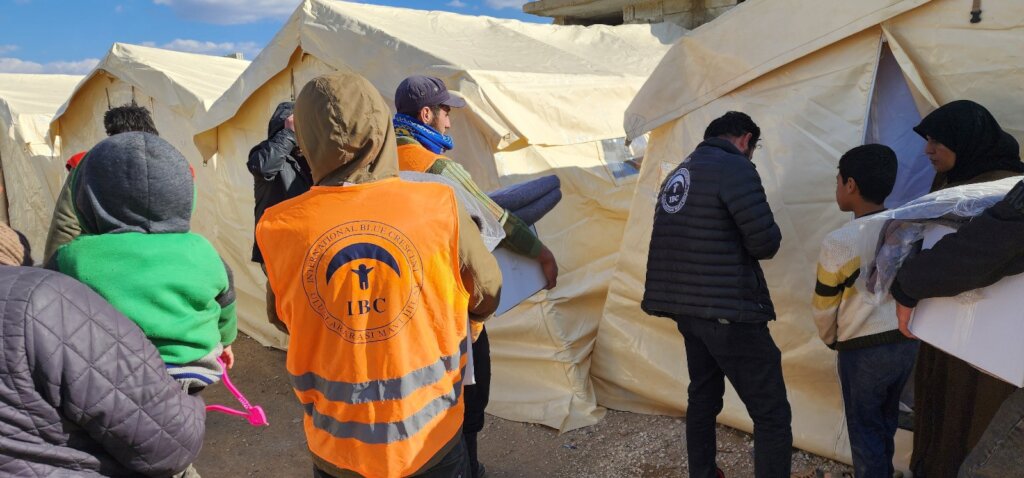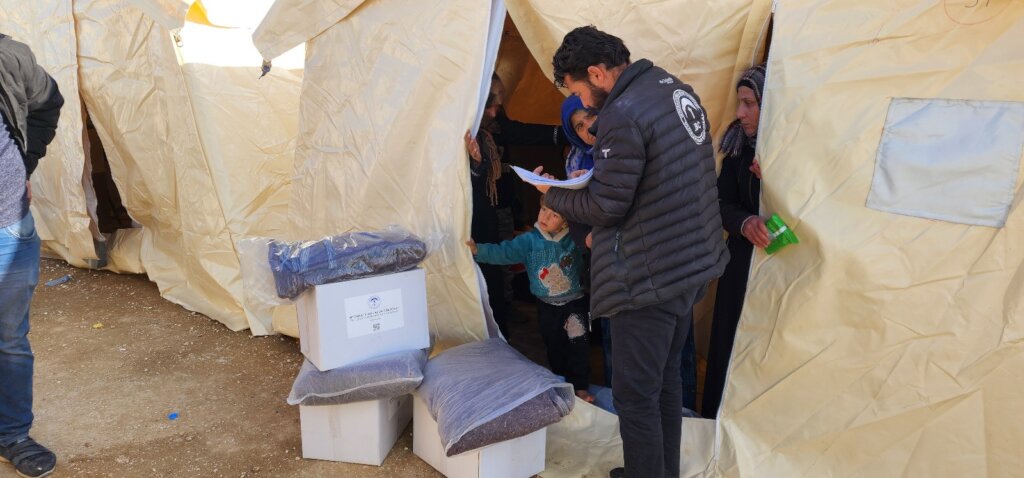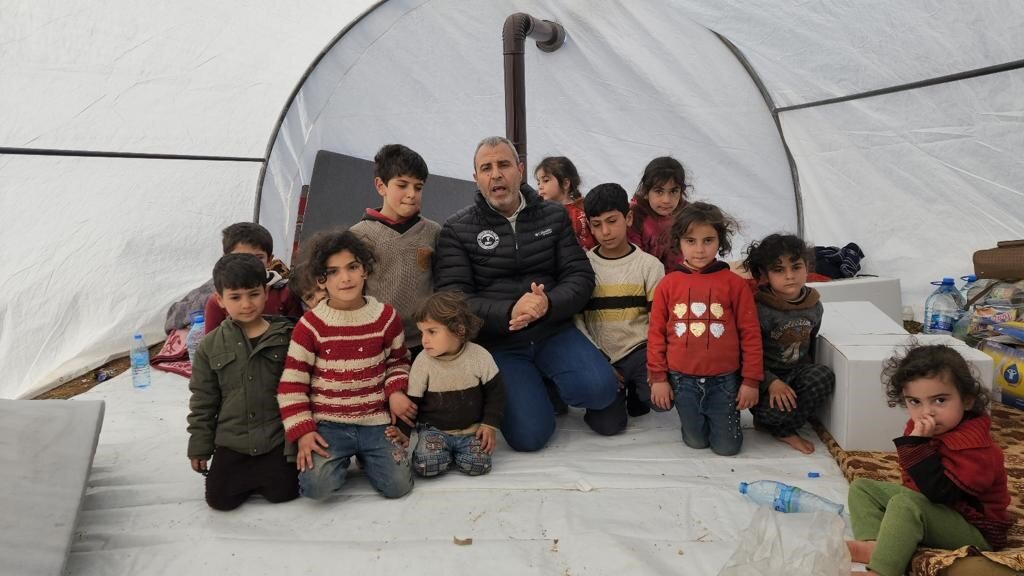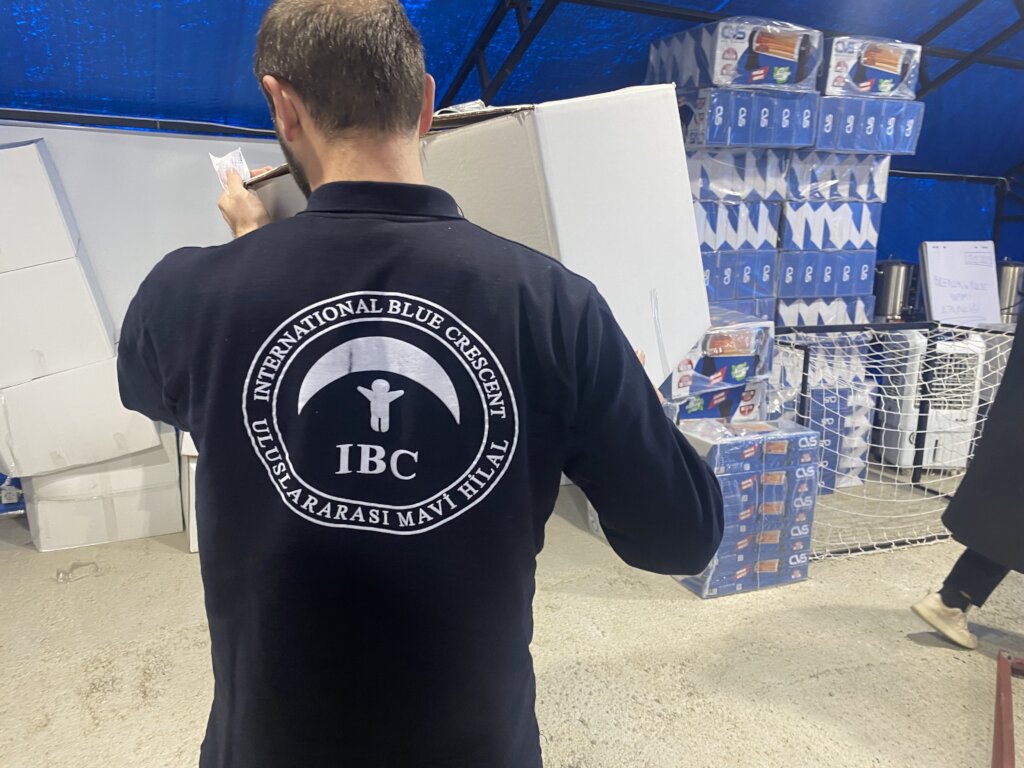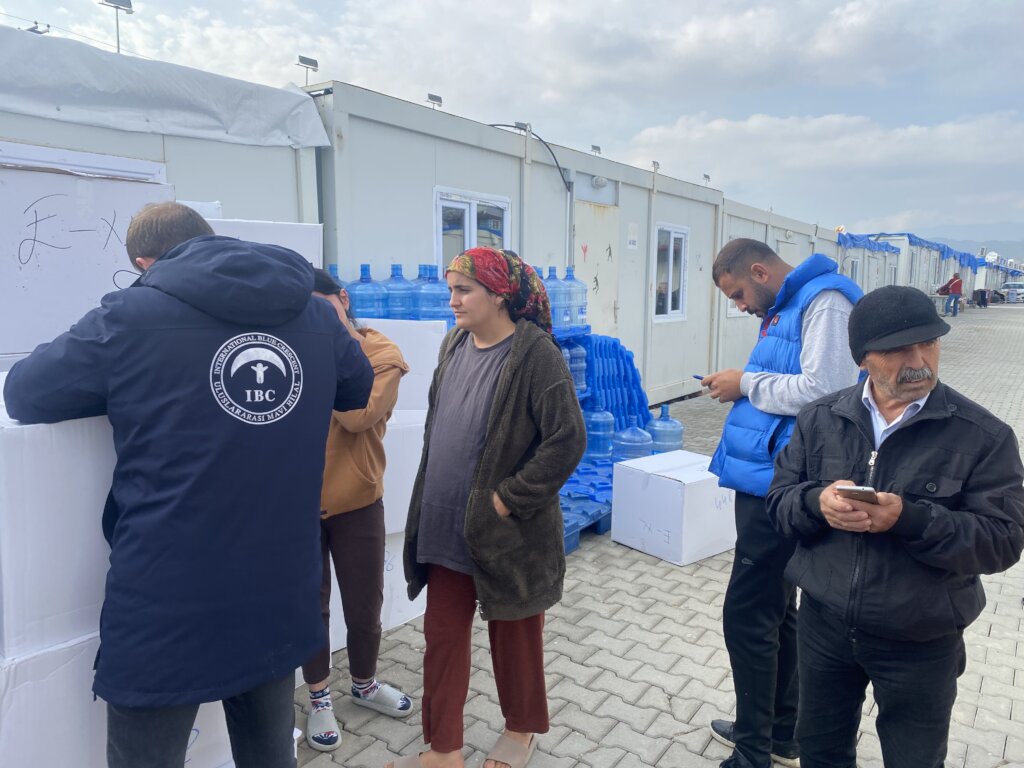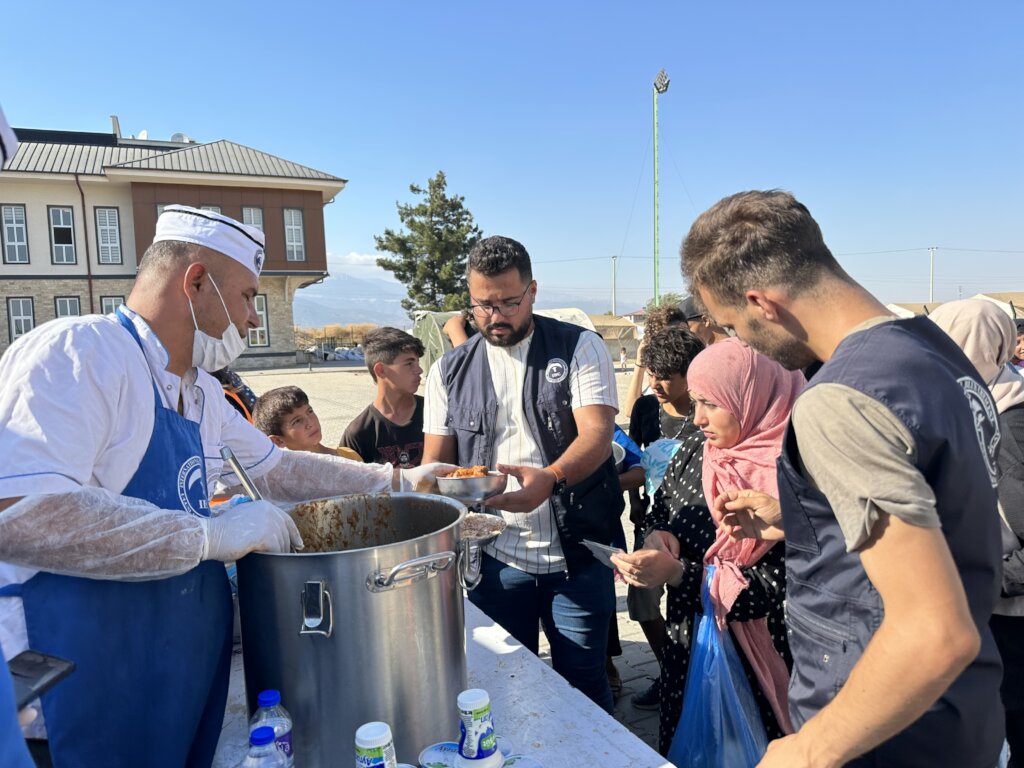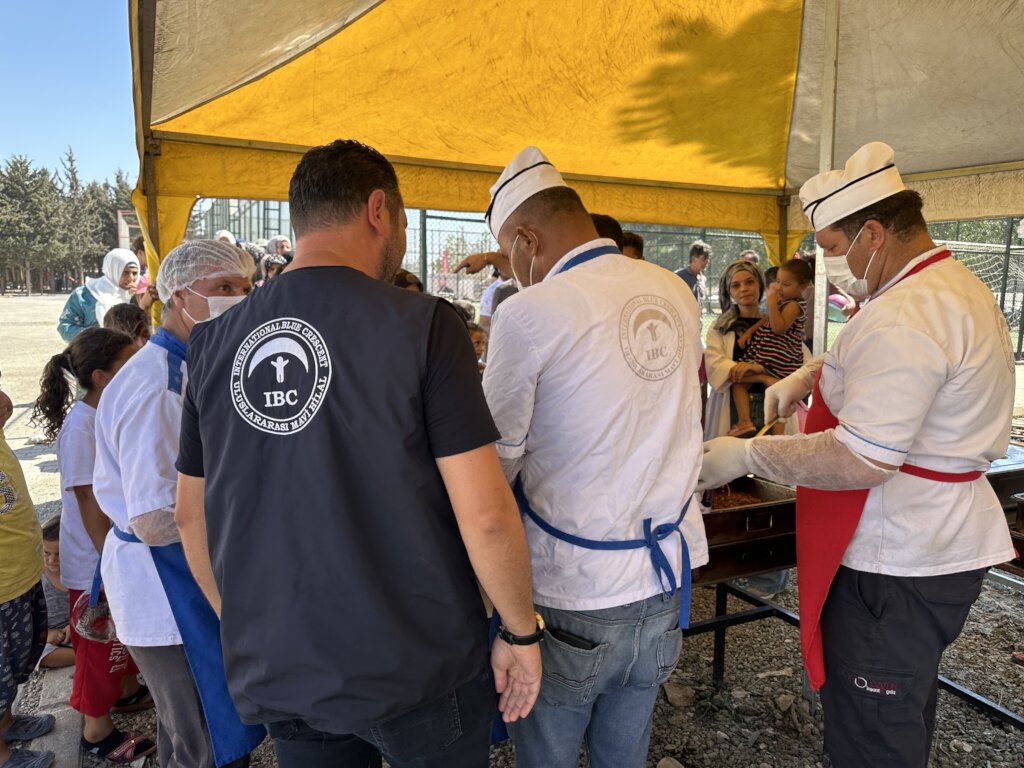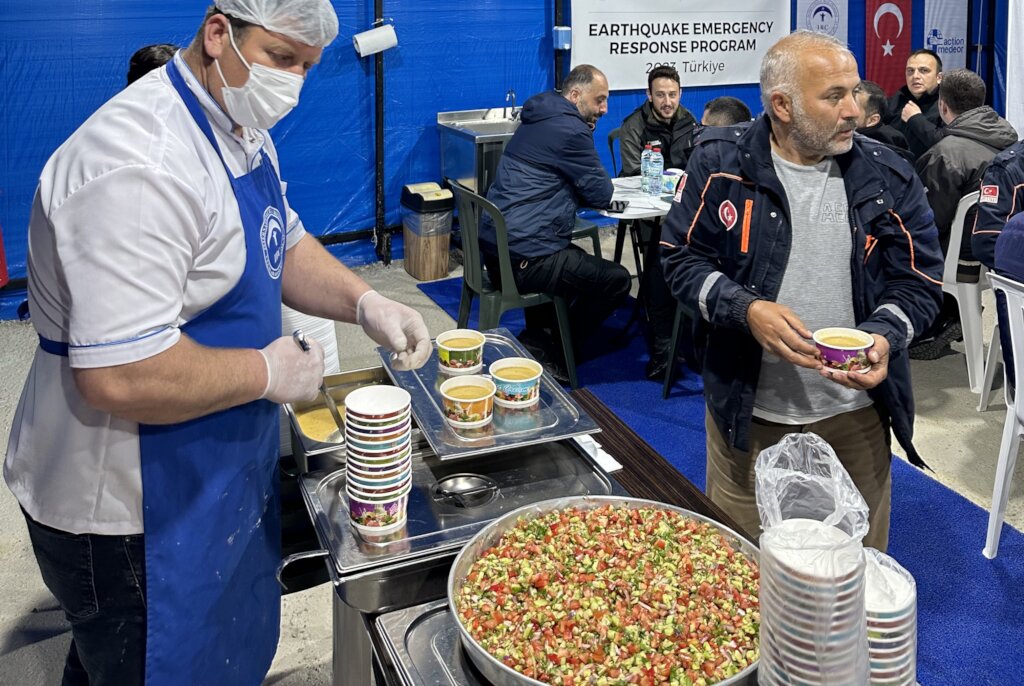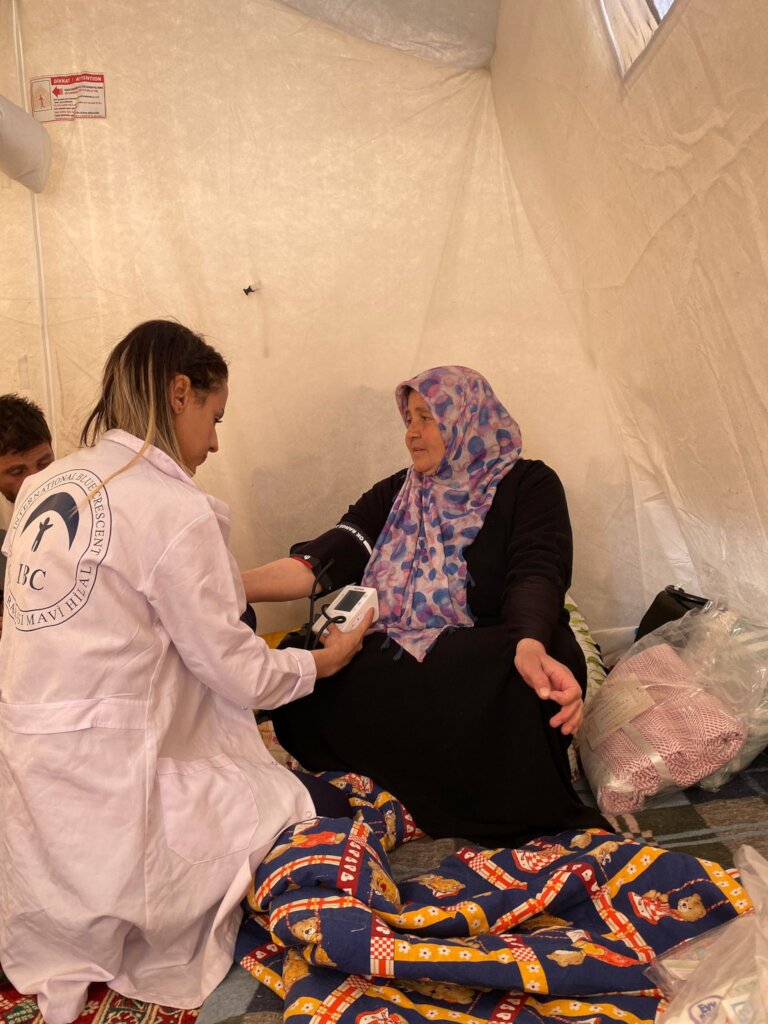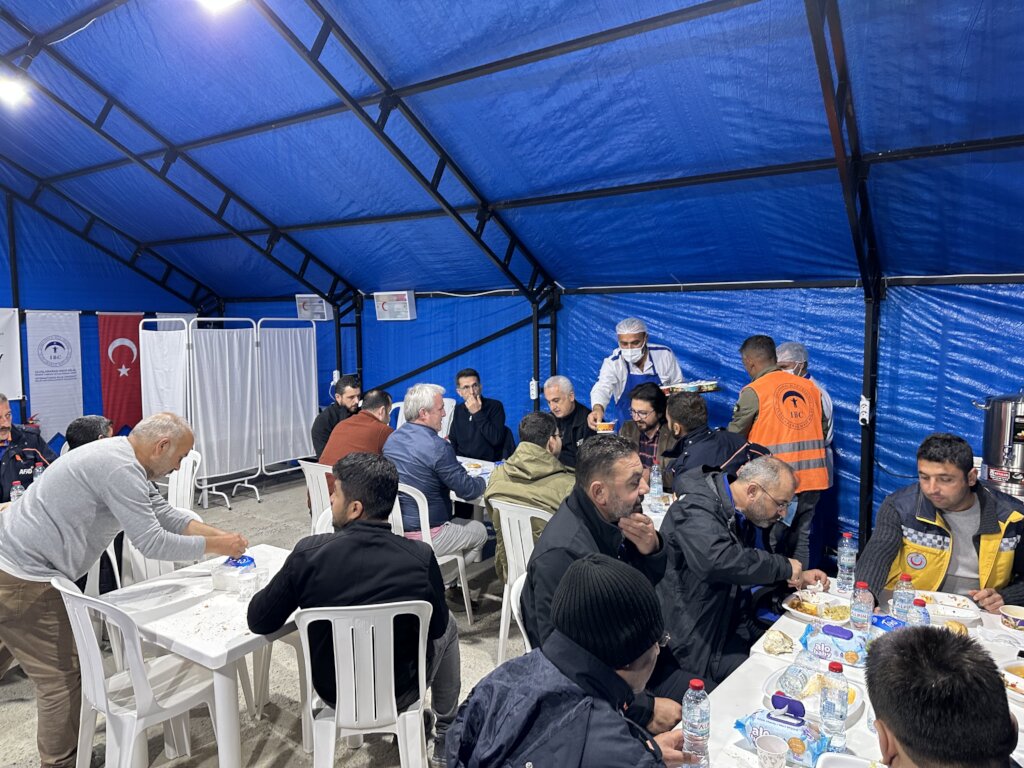By Nalan Uker | IBC Programs Director
On February 6, 2023, a massive 7.8 magnitude earthquake struck central Turkey and northwest Syria, followed by a second major quake and powerful aftershocks. These disasters caused widespread destruction across 11 provinces in Turkey and several governorates in Syria, making them among the most devastating in the region's recent history. In Turkey, over 5.6 million residential units were affected, while in Syria, more than 8 million people were impacted amid ongoing conflict and displacement. The earthquakes severely damaged infrastructure, disrupted essential services, and triggered a public health crisis, further deepening existing vulnerabilities.
Following the devastating earthquakes that struck Turkey and Syria in February 2023, targeted emergency relief interventions were implemented to meet the urgent needs of affected populations. The response focused on life-saving support during the harsh winter conditions and addressed immediate food, warmth, and household needs. A total of 6300 individuals directly benefited from the following critical assistance components:
The operation not only addressed immediate survival needs but also contributed to dignity and resilience during a period of acute crisis.
The humanitarian aid interventions were strategically implemented across the earthquake-affected regions in both Turkey and Syria. In Turkey, assistance reached vulnerable populations in heavily impacted provinces, including Kahramanmaras, Hatay, Gaziantep, Adyaman, Malatya, Kilis. In Syria, relief efforts covered critical areas within the governorates of Aleppo, Idlib, Latakia, Hama, and Tartous. These interventions ensured that essential winter relief, food, and shelter support were delivered to communities most affected by the disaster across both urban and rural settings.
The earthquakes that struck Türkiye and Syria in February 2023, described as the disaster of the century, left thousands of children displaced, traumatized, and in urgent need of humanitarian assistance. Among them was 14-year-old Ahmet, who survived the collapse of his family’s home in Gaziantep, one of the hardest-hit provinces in Türkiye.
Success Story: Restoring Dignity and Comfort – IBC Support for a Child with Duchenne Muscular Dystrophy
The earthquakes that struck Türkiye on February 6, 2023, marked the worst natural disaster in the country’s modern history. Among the thousands affected was 14-year-old Ahmet, a child living with Duchenne Muscular Dystrophy (DMD)—a progressive, life-limiting neuromuscular disorder that had left him completely bedridden.
Ahmet and his family resided in Gaziantep, Islahiye, one of the epicenters of the disaster. When their home was destroyed, the family of six was left without shelter, heating, or access to the critical medical care Ahmet required. IBC’s emergency response teams identified the family during initial assessments and immediately prioritized them for specialized assistance.
Given Ahmet’s medical condition, standard shelter conditions were insufficient. IBC coordinated the provision of a winterized shelter unit adapted for limited mobility and equipped the family with mobile electric heaters to maintain safe indoor temperatures. They also received thermal blankets and winter clothing to prevent further health deterioration.
To address the family’s nutritional needs, IBC delivered monthly food parcels, designed to meet the dietary requirements of a six-person household. Additionally, ready-to-eat hot meals were provided weekly, ensuring the family—who could not cook in displacement—had access to regular, balanced nutrition.
IBC also liaised with local health actors to ensure Ahmet could receive regular medication and hygiene supplies tailored to his condition. His mother expressed profound gratitude:
“Before the earthquake, we were struggling, but we managed. After the collapse, I thought I would lose my son in the cold. IBC saved us—not just with blankets and food, but with compassion.”
Thanks to IBC’s coordinated humanitarian support, Ahmet now rests in a warm, safe space, with his essential care needs met. His story exemplifies how tailored, dignity-based assistance can make a life-saving difference for families with medical vulnerabilities in post-disaster settings.
Project reports on GlobalGiving are posted directly to globalgiving.org by Project Leaders as they are completed, generally every 3-4 months. To protect the integrity of these documents, GlobalGiving does not alter them; therefore you may find some language or formatting issues.
If you donate to this project or have donated to this project, you can receive an email when this project posts a report. You can also subscribe for reports without donating.
Support this important cause by creating a personalized fundraising page.
Start a Fundraiser